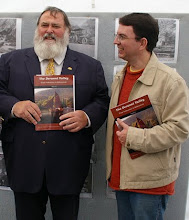DERWENT VALLEY COUNCIL
MEDIA RELEASE
DERWENT VALLEY COUNCIL STRIKES RATES FOR 2011-2012
Friday 24th June 2011
Derwent Valley Council last night held its final budget meeting to set rates and finalise budget priorities for the coming financial year.
“Council is pleased to say that it’s been able to keep rate increases to a modest 3.3% in line with CPI increases, this is one of the smallest increases in the state this year.
“We did this because as a Council we recognise that there are many households under cost of living pressures, increased power bills and the like. However this will mean that there are some projects that we can not fund this financial year and there is little room for additional spending”, Mayor Martyn Evans said.
Rate increases this year coincide with revaluations of properties in the Derwent Valley, through the State Government and the independent Valuer-General’s Department. The majority of properties have had a significant increase in value this year.
“The re-valuation of properties will have an impact on rate rises for some ratepayers.
There will be a redistribution of the rates as a result of the revaluation, and some ratepayers will pay more, while a lucky few will pay a little less. “However across the board there is no bonus in rates revenue for the Council”, said Mayor Evans.
Derwent Valley Council is one of the few councils in Tasmania to ask for submissions from residents for items to be included in the budget.
“This year Council received 13 submissions, and we have been able to include 7 of those in this year’s budget, including:
- Provision of wheelchair accessability at Malbina Cemetary
- Some funding for the Bushy Park Hall
- Some funding for the Magra Fire Station and Hall.
“There were many worthy submissions, but unfortunately because of budget pressures we were not able to include all submissions in this year’s budget.
“I would like to thank everyone who took the time to make a submission, and now that the budget has been finalised Council will notify people of the outcome of their submission,” Martyn Evans said.
For the first time, Derwent Valley Council will impose a minimum general rate on all properties. This falls in line with most other councils around the State and at $225 is much less than that of most councils.
“This minimum rate affects very few properties in the municipality, and is part of our ongoing process to ensure that all property owners contribute to the well being of the area,” Mayor Evans said.
People who would like details of specific parts of the budget should contact the Derwent Valley Council.
“Setting the budget and rates for the coming year is always a challenge, there are a lot of competing ideas and projects, and we have some vigorous discussions around what can be funded.
“I’d like to thank my fellow councillors for their input and time in this process, and council staff for the hard work and preparation they put into the background work,” Mayor Evans concluded.




